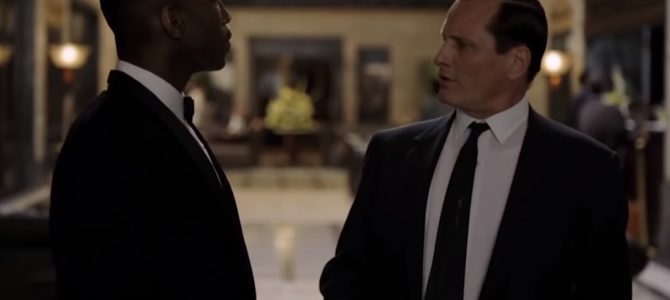I’m of the opinion that Bradley Cooper’s “A Star Is Born” was firmly pro-pop. In all their contrasts, Jackson and Ally functioned as living proof that valuable pop music can reasonably range from “flagrantly vapid” to technically good.
In other words, songs panned by critics that please listeners have value, even if they’re not especially sophisticated or cerebral. This seemed to be the film’s contention about “Why Did You Do That?” (That song, by the way, actually found success with a real-life audience, which should raise eyebrows in and of itself.)
If we accept this premise, there’s an interesting argument embedded in the film about one of its awards season competitors. Extended from music to movies, “A Star Is Born’s” complicated statement on pop actually kind of supports the case for “Green Book.”
Some critics have argued that “Green Book’s” take on race relations is unsophisticated. That may be fair, but unsophisticated films are not necessarily harmful by nature of being unsophisticated (although that argument has also been made about “Green Book,” and perhaps reasonably so). A movie that tackles racism needn’t convey the sophistication of a Harvard dissertation or a Ta-Nehisi Coates essay to be helpful, and I don’t think it’s a straw man to make that point in this context.
As progressive standards of political correctness continue to rise, it’s easy to assume accessibility will be an increasingly difficult and risky pursuit for entertainers. That’s a problem, because it will make music and movies on important subjects less appealing to large audiences. We don’t all have Oberlin degrees, or the appetite to pretend otherwise.
As Washington Post film critic Ann Hornady explained on Wednesday’s Federalist Radio Hour, “Green Book’s” Best Picture win may well be ascribed to the effects of the Academy’s preferential ballot system, rather than a sign it was truly the best film of the year.
At 79 percent, “Green Book” has the lowest Rotten Tomatoes score of any Best Picture nominee since “Crash.” But it also has a 93 percent audience score, the highest of this year’s nominees, which included box office hits like “Black Panther,” “Bohemian Rhapsody,” and “A Star Is Born.” Before the awards, “Green Book” grossed $67 million domestically, which put it well below those three films, but above the rest. It obviously resonated with moviegoers.
None of this is to say that sheer popularity is a definitive indicator of quality, or that popular entertainment can’t be harmful to our culture. (It often is.) Nor is it to say “Green Book” is the “Why Did You Do That?” of movies. Successful as they both may be, a pop song about butts is obviously made to serve a different purpose than a movie about race.
But resonating with a mass audience counts for something big, and a film’s lack of intellectual sophistication should not disqualify it from greatness if the message is good and the experience is moving. The point is that “A Star Is Born’s” depiction of its pop-singing protagonist is reasonably interpreted as a defense of popular entertainment, and that’s a defense “Green Book,” with its accessible approach to racial justice, could actually use.









